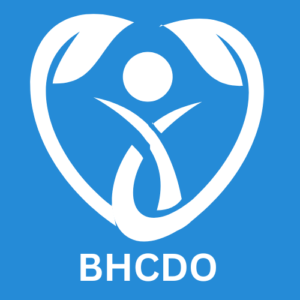Call us
+252-614883858
The Blue Economy is an emerging priority for Better Hope Community Development Organization (BHCDO) as it focuses on harnessing the vast potential of Somalia’s marine resources for sustainable development. Somalia’s long coastline offers immense opportunities for economic growth, especially for coastal communities that depend on fishing for their livelihoods. BHCDO’s Blue Economy programs aim to develop sustainable fisheries, improve marine resource management, and create economic opportunities while preserving the health of the marine ecosystem.
BHCDO’s approach to the Blue Economy goes beyond simply increasing fish production; it integrates environmental sustainability with economic development to ensure that marine resources are used responsibly. This holistic approach focuses on three core areas: environmental protection, economic growth, and social inclusion. By balancing these elements, BHCDO ensures that the Blue Economy benefits both the environment and the people who depend on it for their livelihoods.
For instance, while promoting sustainable fishing practices, BHCDO simultaneously works to protect critical marine habitats, such as coral reefs and mangroves, which are vital for biodiversity and fish reproduction. This interconnected approach ensures that economic activities do not undermine the health of the marine ecosystem and that communities can rely on the ocean’s resources for years to come.
Coastal communities in Somalia face several challenges when it comes to fully utilizing the Blue Economy. These include limited access to markets, inadequate infrastructure, and environmental degradation caused by overfishing, pollution, and climate change. BHCDO addresses these challenges by working with local and international partners to improve infrastructure, provide technical support, and promote sustainable practices.
Climate change also poses a significant threat to Somalia’s marine resources, with rising sea levels, ocean acidification, and temperature changes affecting fish populations and coastal ecosystems. BHCDO integrates climate adaptation strategies into its Blue Economy initiatives, such as promoting the use of climate-resilient fishing practices and supporting the restoration of coastal ecosystems that act as natural barriers against storm surges and erosion.
At the heart of BHCDO’s Blue Economy programs is the goal of improving the livelihoods of coastal communities. Fishing has traditionally been a primary source of income for these communities, but overfishing and environmental degradation have left many fishers struggling to make a living. By providing training in sustainable fishing methods and supporting the development of value chains, BHCDO helps fishers increase their income while ensuring that marine resources are not depleted.
The introduction of fish processing and storage facilities has been particularly impactful, allowing fishers to preserve their catch for longer periods and sell it at higher prices. This not only boosts their economic resilience but also contributes to improved food security by increasing the availability of fish as a source of protein.
Furthermore, BHCDO’s focus on marine conservation ensures that the Blue Economy can continue to thrive in the long term. By engaging local communities in resource management and conservation efforts, the organization fosters a sense of ownership and responsibility for the health of the ocean. This approach empowers coastal communities to take an active role in protecting their environment while benefiting from the economic opportunities that the Blue Economy provides.
BHCDO’s efforts in the Blue Economy are paving the way for a more sustainable and prosperous future for Somalia’s coastal regions. As marine resources become better managed and fishing practices improve, the potential for economic growth through the Blue Economy will continue to expand. By investing in the skills and knowledge of coastal communities, BHCDO is helping to create a generation of fishers and entrepreneurs who can sustain their livelihoods while protecting the ocean for future generations.
In summary, BHCDO’s Blue Economy initiatives aim to promote sustainable marine resource use, improve livelihoods, and protect the marine environment. Through its focus on sustainable fishing practices, fishery development, marine conservation, and community capacity building, BHCDO is working to ensure that the Blue Economy benefits both people and the planet.

Better Hope Community Development Organization is dedicated to transforming lives and building resilient communities across Somalia. Our mission is to provide sustainable and comprehensive solutions in various critical areas to improve the well-being and future prospects of the Somali people.
+252-614883858
info@betterhopecommunitydevelopment.org
Baidoa, Southwest State Somalia
BHCDO© 2024, All Rights Reserved